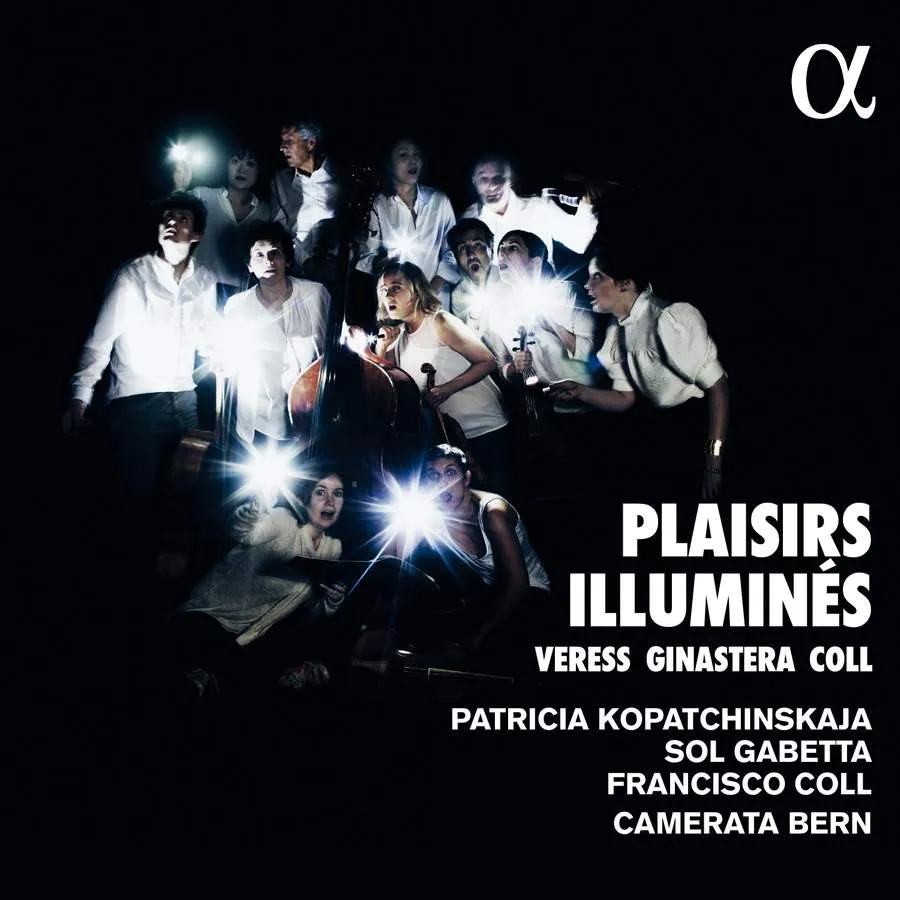
Plaisirs illuminés F Coll: Les plaisirs illuminés; Ginastera: Concerto for Strings; Veress: Musica concertante; plus works by Bartók, Kurtág and Ligeti Patricia Kopatchinskaja (violin), Sol Gabetta (cello); Camerata Bern/Francisco Coll Alpha Classics ALPHA580 75:26 mins
Two threads run through this adventurous disc – the spirit of Béla Bartók and the Camerata Bern’s prowess – but the force of personality at the centre of it all comes from the violinist Patricia Kopatchinskaja, who since 2018 has been ‘artistic partner’ of the ensemble. It opens with Sándor Veress’s Musica concertante per 12 archi, written in 1965-6 for the then newly formed Camerata Bern, and which in this performance comes across with fiery, searing spirit.
Veress had been a pupil of Bartók, and in turn taught both Ligeti and Kurtág, so miniatures by these three composers (played by Kopatchinskaja with different members of the ensemble) fit beautifully here: the ultra-concise ‘Jelek VI’ from Kurtág’s Games, Signs and Messages, the quirky Pizzicato from Bartók’s 44 Duos for Two Violins, and the haunting Baladă și joc by Ligeti.
Bartók’s folk-music spirit extends even to Francisco Coll’s Les plaisirs illuminés, a double concerto (in which Kopatchinskaja is joined by the equally compelling Sol Gabetta) inspired by the Dalí painting of the same name and written in 2018 for these Bern forces. Though the Camerata usually plays without a conductor, this challenging score really needs one and Coll (making his conducting debut) obtains an impressive performance. Folk roots are audible in the ‘flamenco on speed’ third movement, and the work concludes with an intricately interwoven ‘Lamento’. The third substantial work is Ginastera’s Concerto per corde, which through its use of folk-inspired quartertones evokes a musical sort of magic realism, culminating in a virtuosic finale. Far from being anti-climactic, an improvised postscript clears the air at the end of this extraordinary disc.
John Allison